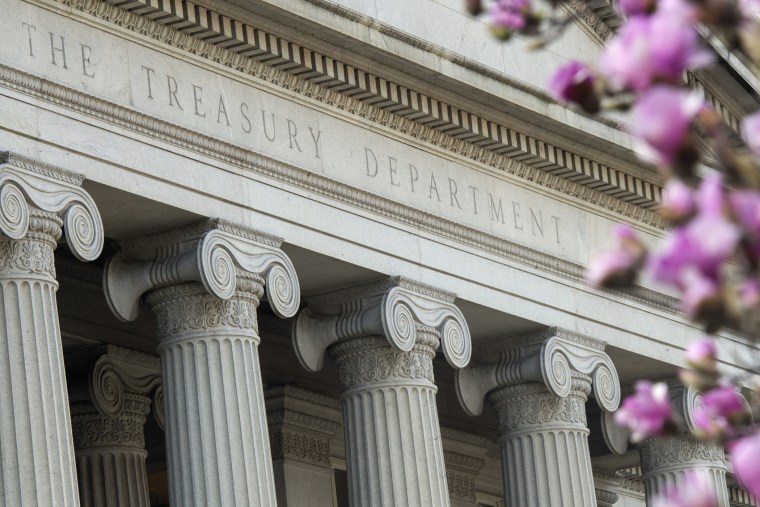Just last month, Equifax, one of the nation's largest credit reporting agencies, was accused of exposing private information belonging to 143 million people, including Social Security numbers, credit card numbers, birth dates, home addresses, and in some instances, driver's license numbers. This was, naturally, a high-profile scandal for the company and the industry.
And in the wake of that controversy, I naively thought it'd be a while before Republican officials publicly agreed with Equifax about much of anything. And yet, the Washington Post had this item yesterday.
In a highly unusual move, the Trump administration on Monday attacked a rule proposed by one of its own agencies.The intergovernmental fight pits regulators appointed by President Trump -- Treasury Secretary Steven Mnuchin and acting comptroller of the currency Keith Noreika -- against one of the few Obama administration appointees remaining -- Richard Cordray, the head of the Consumer Financial Protection Bureau.
Circling back to our coverage from several weeks ago, at issue is something known as arbitration clauses, which are pretty straightforward: in the finance industry, corporate powerhouses want to make it vastly more difficult for consumers to sue them. For example, if you were to open an account with Wells Fargo, it'd like you to agree to arbitration in the event you feel ripped off by the financial giant. The same is true of credit-card companies and credit-rating agencies such as Equifax.
With this mind, as the New York Times reported in September, the Consumer Financial Protection Bureau (CFPB) has finalized a rule "prohibiting companies from forcing customers into arbitration over disputes, a method that companies have used to block class-action lawsuits."
Yesterday, the Trump administration announced it opposes the CFPB's rule. If Equifax, Wells Fargo, or others in the industry want to block class-action suits and force aggrieved consumers into arbitration, that's just fine with Trump's Treasury Department.
At least for now, the fight will continue, and appears likely to shift to Capitol Hill. House Republicans have already passed a measure intended to block the CFPB's rule, and at the Trump administration's urging, Senate Republicans may soon do the same.
My best guess, though, is that they'll wait a little longer for the Equifax headlines to fade from public view.
